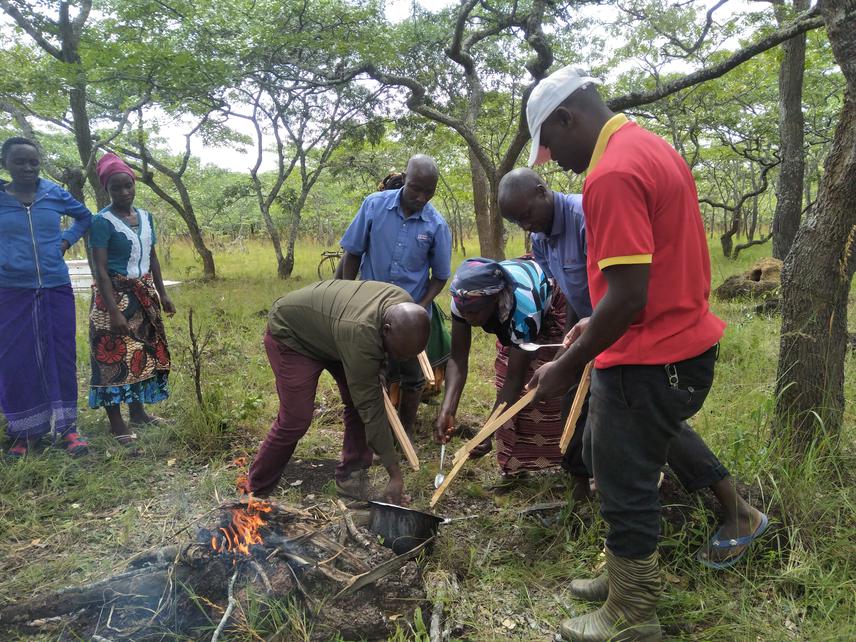Simula Maijo
Other projects
7 Jan 2019
Will Anthropogenic Activities Influence Chimpanzee Forage Species and Habitat Selection? A Case Study in the Masito-Ugalla Ecosystem, Tanzania
14 Jul 2020
Improving Conservation of Chimpanzee Habitat Through Beekeeping and Tree Planting in the Masito-Ugalla Ecosystem, Tanzania
24 Jul 2023
Scaling Up Conservation of Eastern Chimpanzee (Pan troglodytes schweinfurthii) and its Habitats in Tongwe Forest Reserves, Western Tanzania
17 Mar 2025
Promoting Beekeeping Value Chain and Conservation of the Threatened Wild Edible Orchids in Tongwe Forest Reserves, Western Tanzania
In Tanzania, the majority of chimpanzees live at low densities outside national park boundaries where they are threatened by habitat loss and fragmentation. Yet, significant populations of chimpanzees are found in the Masito-Ugalla Ecosystem (MUE), an ecosystem partly protected as Tongwe Forest Reserves (TFRs). Notwithstanding the presence of chimpanzee populations in MUE, some parts of this ecosystem are threatened by recurrent anthropogenic disturbances due to their proximity to human settlements. Anthropogenic pressures on MUE have negatively affected chimpanzee populations due to habitat loss and fragmentation. This project focus to support local communities’ initiatives aiming to enhance the livelihoods of local people in villages adjacent to MUE while effectively contributing to the management of chimpanzee habitats. Specifically, this project aims at promoting sustainable beekeeping which is one of the existing alternative livelihood strategies with the potential of contributing to the management of the threatened chimpanzee habitats in MUE.

Beekeeping is a potential sustainable livelihood activity that can be used as a strategy for nature conservation and poverty alleviation. Sustainable beekeeping is acknowledged to significantly contribute to the world's sustainable development goals (SDGs) through food security and nature conservation. Indeed, sustainable beekeeping does not deplete natural resources nor require the local communities to abandon their villages that are bordering the forest reserves. Hence, beekeeping projects can serve as opportunities for rural communities to stay connected to forest reserves and improve their standard of living. Thus, this project will promote the conservation of chimpanzee habitats by discouraging anthropogenic activities that deplete chimpanzee habitat quality. People at the village level will be reached, trained, and empowered to participate in sustainable beekeeping activities. In the end, this would result in long-term conservation success as local communities will be equipped with entrepreneurial skills related to apibusiness.
Briefly, this project is anticipated to achieve the followings; (i) reduce or stop forest degradation which is caused by unsustainable anthropogenic activities in the vicinity of chimpanzee habitat, (ii) reduce poverty among the local communities through improving their livelihoods, a situation that will reduce over-dependence on nature, (iii) create employment and income for local families while helping to conserve chimpanzee habitats, (iv) increased agricultural yields through pollination services, and (v) the ecological role played by bees through pollination of flowering plants will increase the quality of chimpanzee habitat in terms of food and nesting resources availability and eventually improve chimpanzee conservation.